Harry Freedman
Harry Freedman (1922-2005) was born in Poland and came to Canada with his family when he was three. His early training was as a visual artist but during his teens he developed an interest in jazz which soon spread to classical music. At eighteen, he made the break and began studying clarinet. After four years in the RCAF during the war, he came to Toronto to study oboe with Perry Bauman and composition with John Weinzweig at the Royal Conservatory of Music. The following year he joined the Toronto Symphony Orchestra as its English horn player, a post he held for 24 years until he resigned in 1970 to devote his full time to composing. Apart from brief periods with Aaron Copland and Olivier Messiaen (Tanglewood, 1949) and Ernst Krenek (Toronto, 1953), the 5 years he spent with Weinzweig were the extent of his formal studies in composition. Freedman is one of Canada’s most frequently performed composers. His output has given us a vast array of over 200 compositions ranging from solo voice to choir, from full orchestral symphonies to string, wind and brass ensembles, from theatre to dance stage and from film to television programs. Of the many honors his music has garnered, two stood out in Freedman’s mind. In 1970, the Brian Macdonald ballet 5 OVER 13, for which Freedman wrote the music, received front-page headlines when the Royal Winnipeg Ballet performed it in Rotterdam. And in 1988, Borealis, for orchestra and four choirs, was presented in Paris at the International Rostrum of Composers, an annual symposium of music producers (radio) who present broadcast recordings of the most interesting pieces they have heard during the past year. 60 compositions from 32 countries were presented. Borealis placed 4th – which, as Freedman points out, was the musical equivalent of being nominated for the Booker Prize. As a result of his standing, Borealis was performed 22 times all over the world. He was a founding member of the Canadian League of Composers (president, 1975-78) and of the Guild of Canadian Film Composers. In 1967, he was chosen to represent Canada at the 2nd Festival of Music of the Americas and Spain in Madrid, where his First Symphony was performed. In 1970 he won the Etrog (now called the Genie) for best music in a feature film at the Canadian Film Awards. In 1984 he was appointed an Officer of the Order of Canada. Freedman was one of a handful of composers who earned their livelihoods solely from their music. His wide experience in all musical fields has enabled him to write in many different idioms, all of which have contributed to and are recognizable in his musical style. The composer-critic Udo Kasemets had this to say in an early review of Tableau and Images: “…He has all the makings of becoming a prominent figure on the Canadian scene, especially since he has captured in his music much of the spiritual atmosphere of this country. If we ask, what is Canadianism in music? a great part of the answer may well lie in Freedman’s work and personality… Here is a man whose ethnic origin is neither English nor French and whose birthplace was outside of this country, yet whose upbringing and education took place in Canada and whose artistic fights are fought in the atmostphere of the land of his parents’ adoption.” 2005, Biography amended from original CAPAC,
Canadian League of Composers (2002)
Showing all 15 results
-
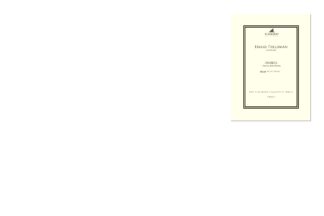
Anerca (High Voice)
$27.99 Add to cart -
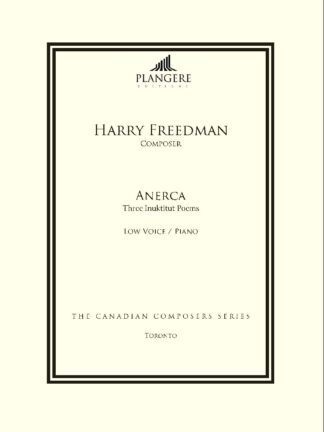
Anerca (Low Voice)
$27.99 Add to cart -
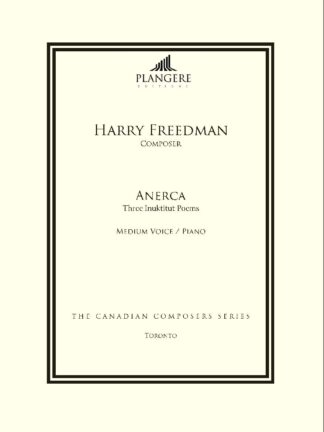
Anerca (Medium Voice)
$27.99 Add to cart -
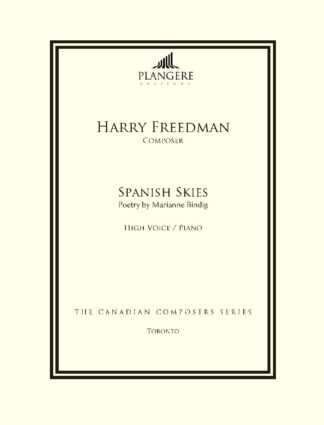
Spanish Skies (High Voice)
$29.99 Add to cart -
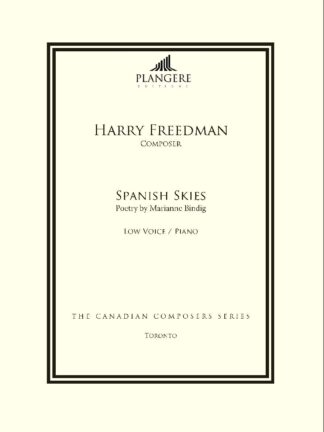
Spanish Skies (Low Voice)
$29.99 Add to cart -
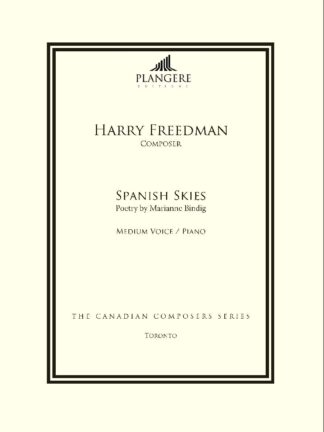
Spanish Skies (Medium Voice)
$29.99 Add to cart -
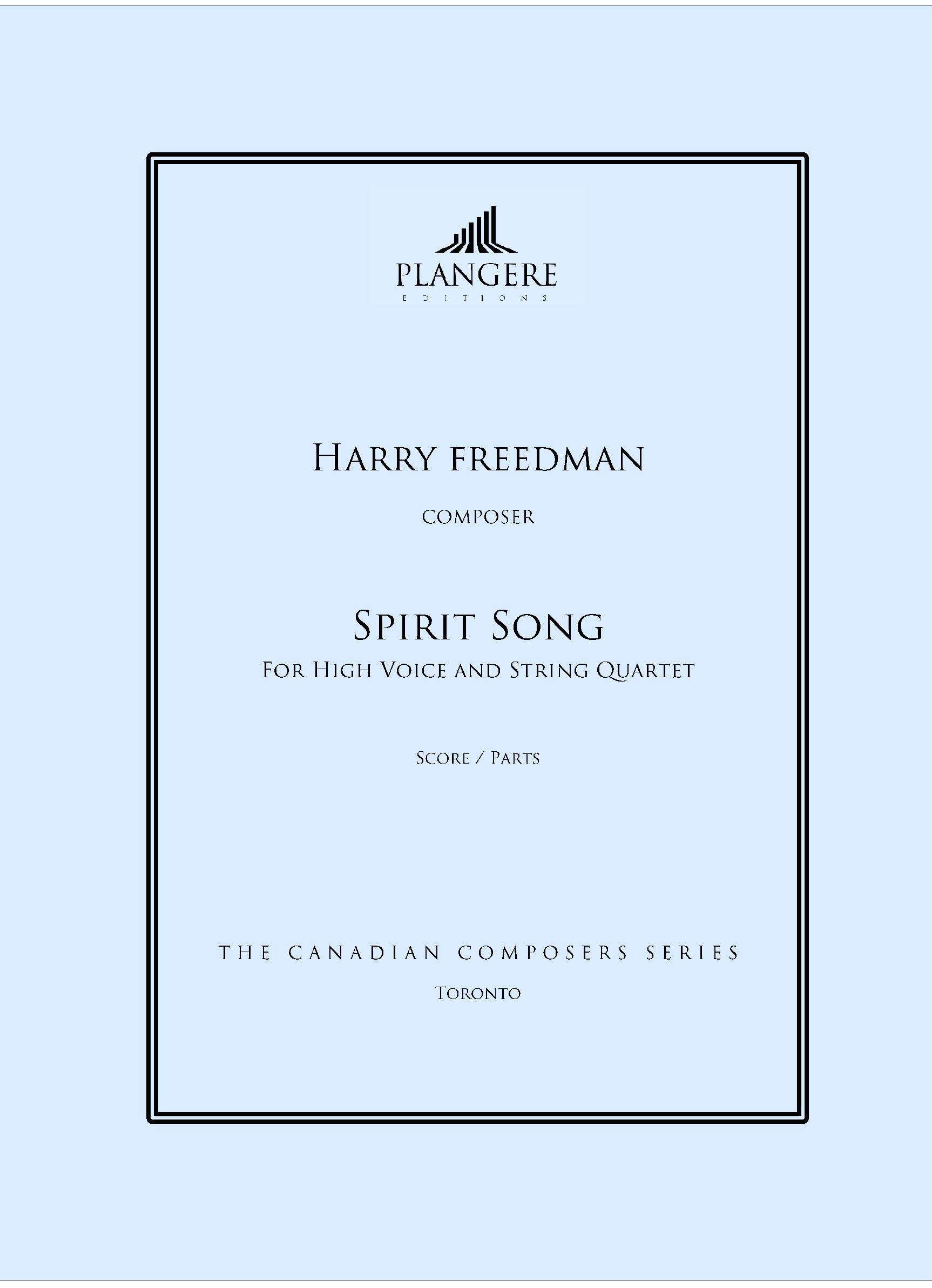
Spirit Song for High Voice and String Quartet
$129.99 Add to cart -
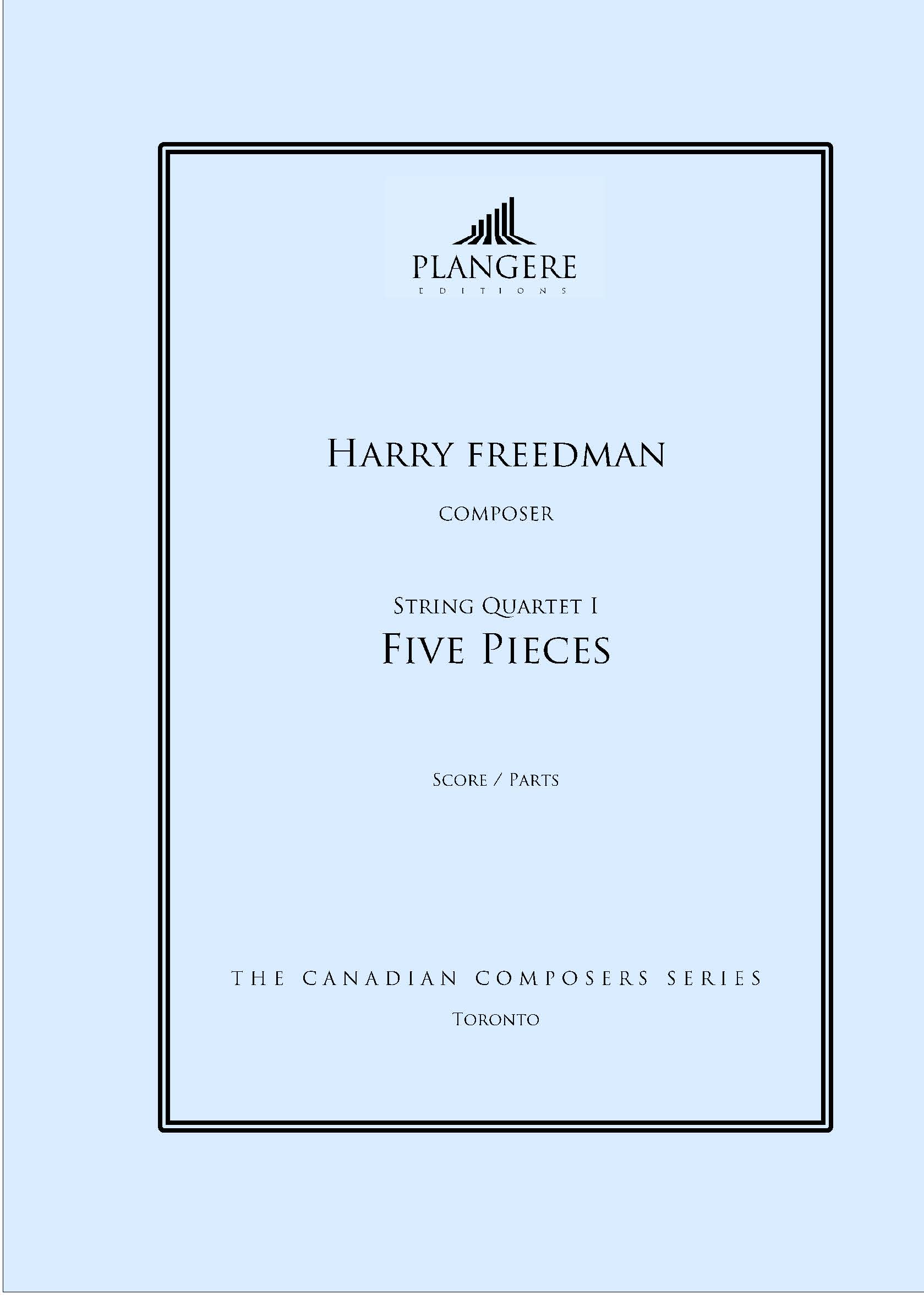
String Quartet I – Five Pieces
$129.99 Add to cart -
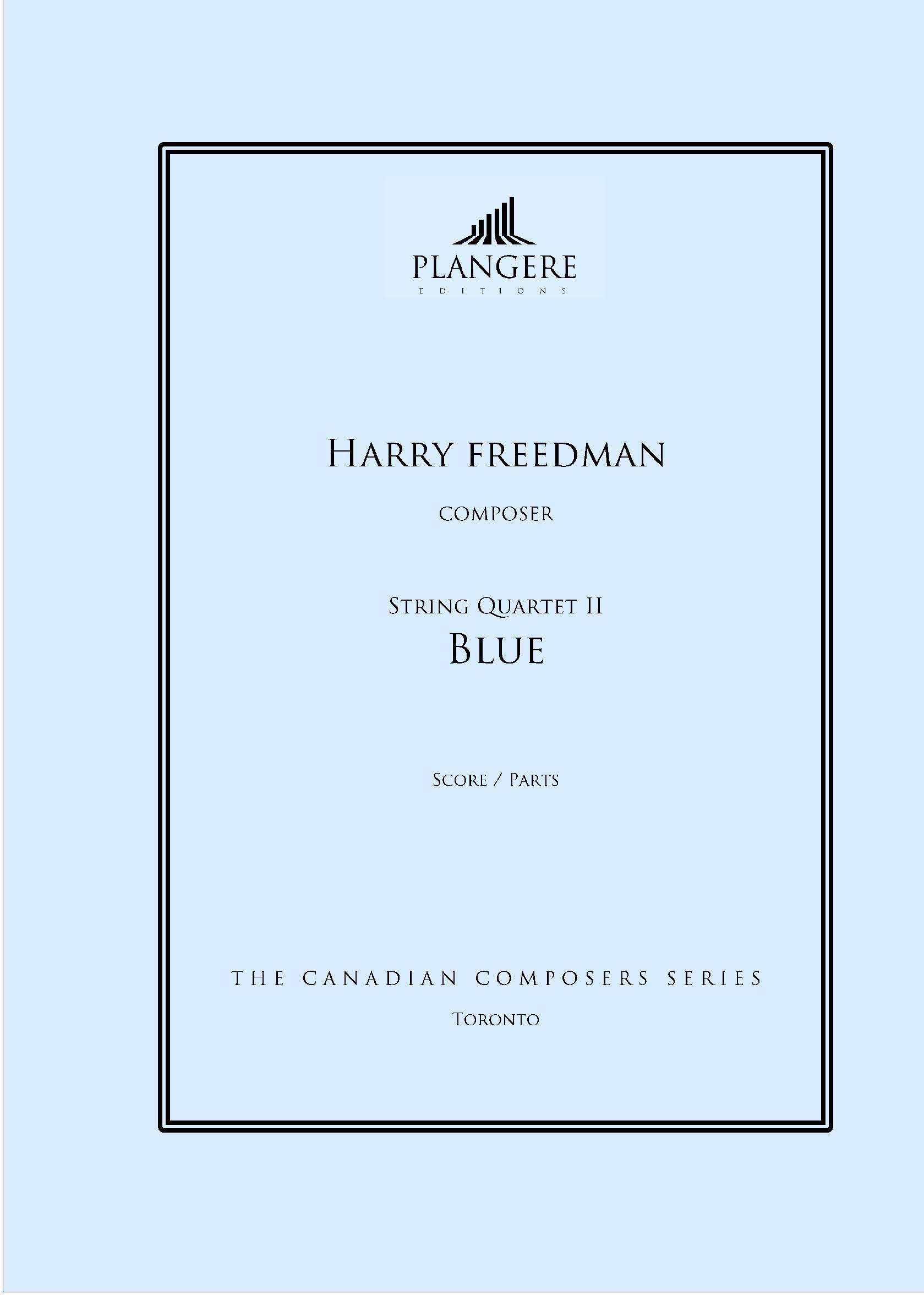
String Quartet II – Blue
$129.99 Add to cart -
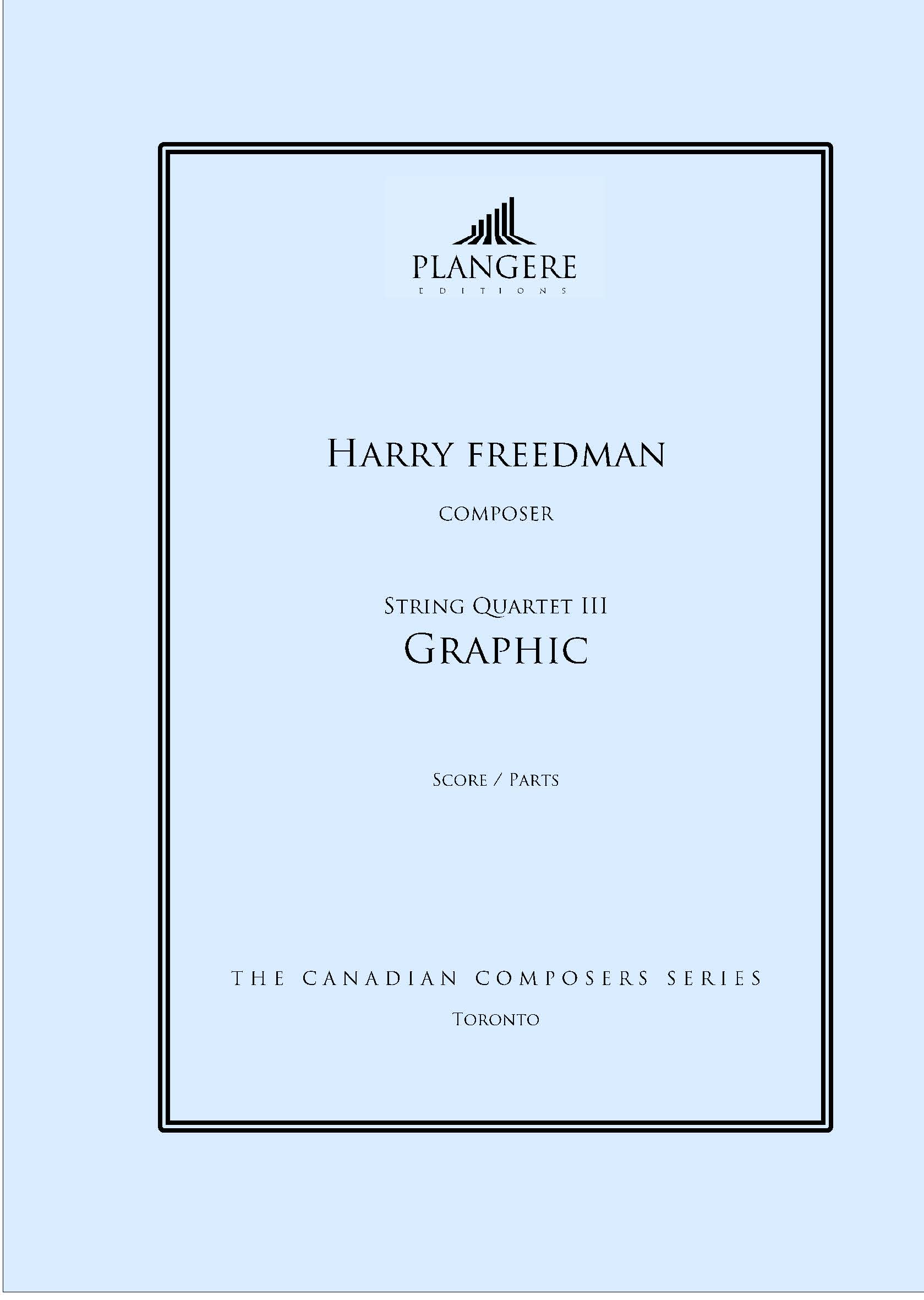
String Quartet III – Graphic
$129.99 Add to cart -
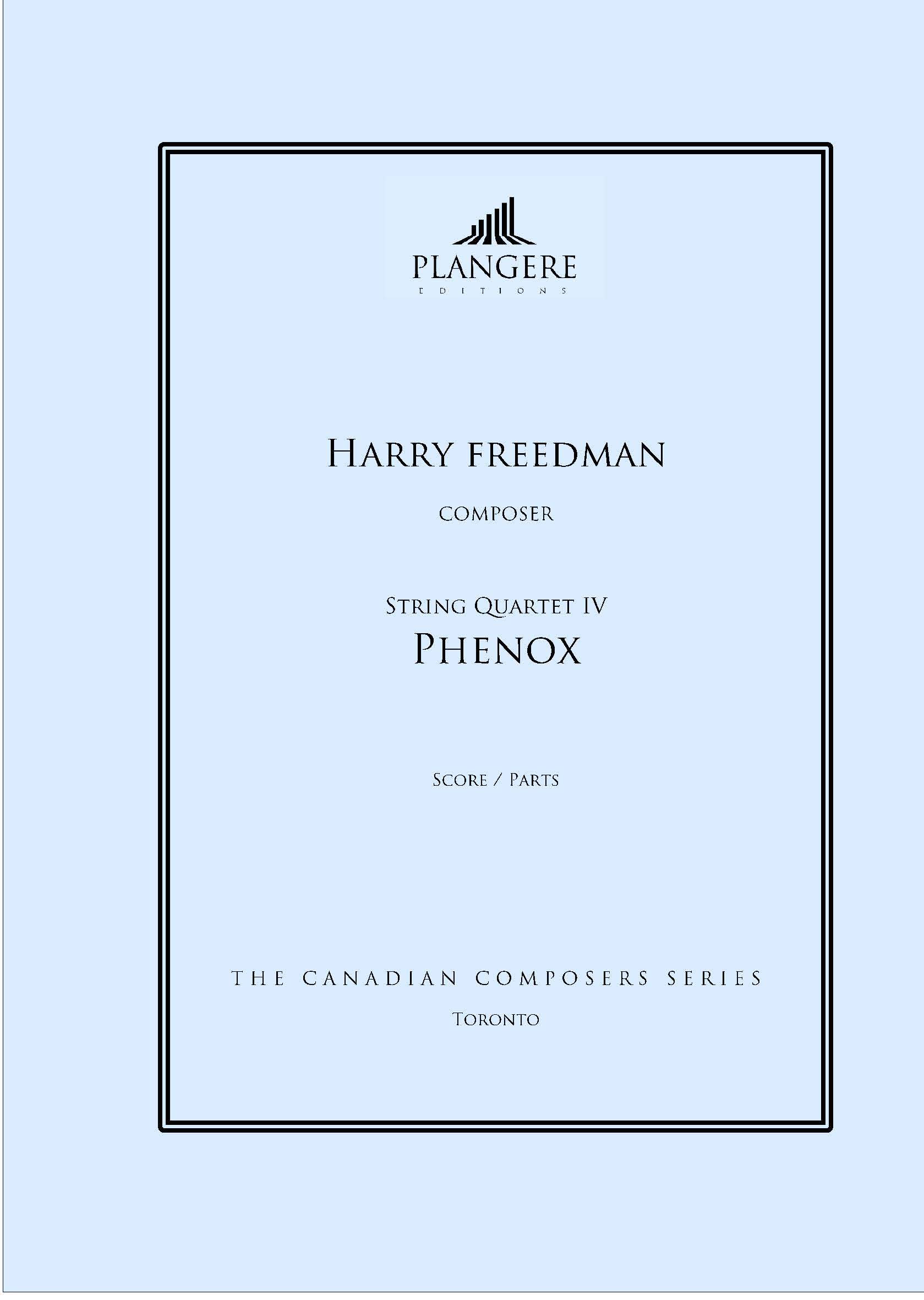
String Quartet IV – Phenox
$129.99 Add to cart -
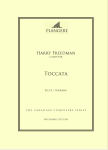
Toccata for Flute and Soprano
$29.99 Add to cart -
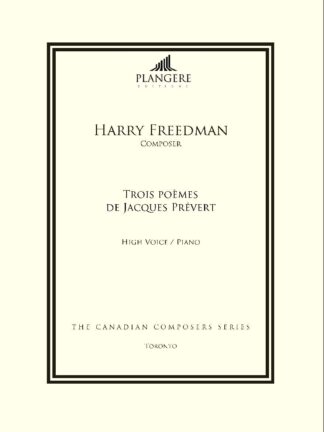
Trois poemes de Jacques Prevert (High Voice)
$29.99 Add to cart -

Trois poemes de Jacques Prevert (Low Voice)
$29.99 Add to cart -

Trois poemes de Jacques Prevert (Medium Voice)
$29.99 Add to cart
Showing all 15 results
